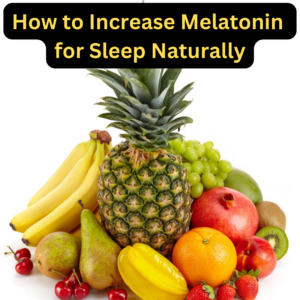 Better sleep is something that millions of people with insomnia are looking for.
Better sleep is something that millions of people with insomnia are looking for.
Per the American Academy of Sleep Medicine survey results, about 1 in 8 people, or 12% of Americans said they have been diagnosed with chronic insomnia.
What if one of the the keys to restful slumber could be related to what you put on your plate? Recent studies reveal that certain healthy carbohydrates can work wonders for improving sleep quality, helping you fall asleep faster and wake up less often. Here’s a breakdown of the top sleep-friendly carbs and how they benefit your body.
Sweet Potatoes: A Sleep Superfood
Sweet potatoes are not only delicious but also packed with sleep-promoting nutrients. High in potassium and magnesium, they help relax your muscles and reduce nighttime cramping. A 2022 study in the *Journal of Clinical Sleep Medicine* highlighted that potassium-rich diets can reduce nighttime disruptions, making sweet potatoes an excellent choice for dinner.
Oats: The Comfort Carb
A bowl of oatmeal isn’t just a comforting snack; it’s a scientifically proven sleep booster. Oats are high in melatonin, a hormone that regulates sleep cycles, and they’re also a great source of calcium, which helps the brain use the amino acid tryptophan to produce melatonin. Plus, oats contain slow-digesting fiber that keeps blood sugar stable, preventing nighttime awakenings. According to a study in *Nutrients*, calcium is a vital nutrient for improving deep sleep.
Bananas: Nature’s Nightcap
Bananas are a natural sleep aid, loaded with magnesium, potassium, and vitamin C, which supports healthy nerves and reduces stress. They also contain tryptophan, an amino acid that promotes relaxation. Regarding the magnesium contained in bananas, an analysis of several different studies explored the impact of magnesium supplementation on sleep quality. The findings revealed that magnesium not only improves overall sleep quality but also enhances sleep duration.
Brown Rice: For Slow and Steady Rest
Brown rice is a fantastic option for those who wake up frequently during the night. This whole grain provides steady energy and contains GABA, a natural brain chemical known for its calming effects on the nervous system. The Healthline website shared a study showing improved sleep from GABA supplementation. Brown rice is also a good source of the mineral manganese, which promotes strong, dense bones when combined with calcium and vitamin D.
According to the National Council on Aging, brown rice contains many of the B vitamins including B1, B3, B6, and B9. Vitamin B9, also known as folate, is a key player in helping the body produce serotonin and melatonin for a good night’s sleep
Quinoa: Iron for Strong Sleep
Quinoa is a complete protein and a top choice for vegetarians seeking sleep-friendly carbs. In addition to magnesium, quinoa is rich in iron, which supports healthy oxygen flow to the brain and reduces fatigue. A 2023 study in *Advances in Nutrition* found that iron-rich diets can significantly reduce a form of insomnia known as restless leg syndrome.
A Recipe for Restful Nights
Incorporating these foods into your daily meals can pave the way for a relaxing night’s sleep. Whether it’s a sweet potato mash for dinner, a banana-oat smoothie before bed, or a quinoa salad for lunch, these healthy carbs will help you fall asleep better and wake up feeling refreshed.
Supplements for Better Sleep and Good Health
This natural health news is shared by Nutrition Breakthroughs, maker of the original and effective calcium and magnesium based sleep aid Sleep Minerals II (also containing vitamin D and zinc).
***** Suzanne G. of Tucson, Arizona says: “I am now taking the Sleep Minerals II capsules each night. I have had insomnia for most of my life and the longer I take Sleep Minerals, the better I sleep. The best thing is that I can now get back to sleep if I wake up in the night. It has given me such a sense of peace to know that I now can be well rested during the day. I also find my brain less foggy from lack of sleep. I have tried many products on the market and this is the one that is gold. Thank you so much for producing a quality product!”






